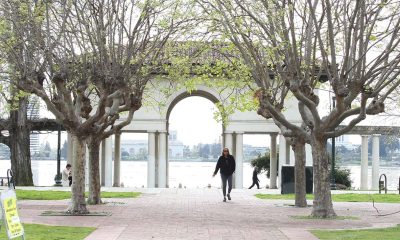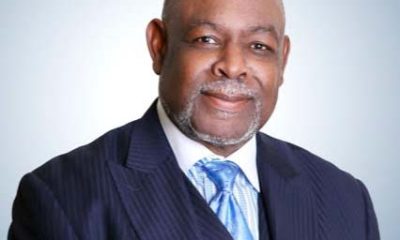Business
FROM LA TO THE BAY, WITH LOVE:
In 1993, Carter’s experience with drugs and homelessness led her down a path of crime that ended with her serving time in prison. That experience, she says, led her to realize that it was finally time to change. Cedar House, a center for alcohol and drug treatment, afforded her the opportunity to be part of a six-month reentry program after serving time. The program helped Carter tap into her potential and revisit her youthful aspiration of having a professional career.
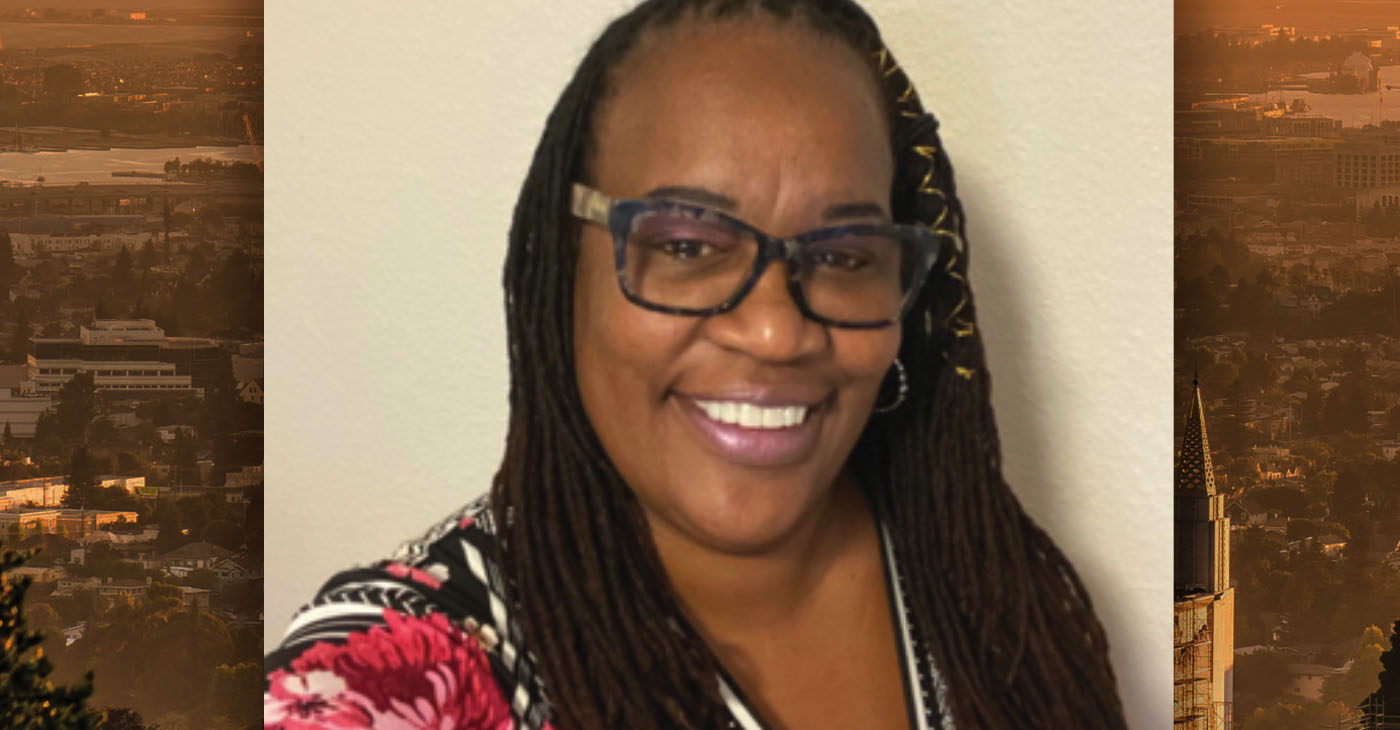
Southern Cal Woman Brings Program Tackling Homelessness and Unemployment to Alameda County
By Bo Tefu | Impact Alameda and Photos by LaurenRichardson
Beating the odds of poverty and drug addiction, Kim Carterused her knack for numbers to become a certified accountant. She also established Timefor Change Foundation, a nonprofit organization that helps to empowerdisenfranchised communities in California based on data that reveals whateach local area it serves needs.
Carter, a 2016 Top 10 CNN Hero, was raised by a single mother offour who worked multiple jobs to make ends meet. She grew up intellectually gifted, and recalls being placed in advanced classes for most of her childhood. As a latchkey kid with a lot of free time, Carter made some poordecisions and hung out with the wrong crowd, she says. “I came from an unhealthy environment, and under-invested community that had heavy drugs and criminal activity,” says Carter. “It was basically survival of thefittest.”
In 1993, Carter’s experience with drugs and homelessness led her down a path of crime that ended with her serving time in prison. That experience, she says, led her to realize that it was finally time to change. Cedar House, a center for alcohol and drug treatment, afforded her the opportunity to be part of a six-month reentry program after serving time. The program helped Carter tap into her potential and revisit her youthful aspiration of having a professional career.
As a product of the reentry program, Carter landed various positions working as an accountant. She kept climbing the ranks and continued to acquire certifications and skills in the discipline. Early in her career, Carter graduated from San Bernardino Valley College and the University of Redlands with accounting degrees. As her life was picking back up, she lost
her job due to company layoffs which inspired Carter to pivot, transferring her accounting talent to the world of nonprofit work.
“I saw accounting as a way out of poverty, it afforded me the chance to get my own apartment,” she says. “I was able to get my daughter back and provide for her.” Carter’s daughter, who was 13-years-old at the time of their reunion, lived with her maternal grandmother in Los Angeles.

Carter says she has managed to avoid using drugs and going back to prison since she was released after serving time for her felony conviction 27 years ago.
Establishing the Time for Change Foundation was a lifelong dream for Carter whose passion for women and children stems from her own personal experiences with unemployment and homelessness. Despite her extensive work experience, Carter says many employers still rejected her because few of them were willing to trust a person with a felony conviction and put her in charge of handling their money.

Evidence-Based Programs for Economic Progress and Family Reunification
Formerly incarcerated women often face discrimination when reintegrating into a society, Carter says. According to her, that minimizes the effectiveness of many state programs that aim to help them get them back on their feet.

Because this problem is systemic, it is a major reason Time for Change implements housing and job placement programs that particularly help Black and Brown women rebuild their lives with careers that can sustain them and their families.
Researchers at the nonprofit evaluate the education, housing, and employment programs quarterly to gauge the effectiveness of each initiative. Measuring the impact of each initiative is crucial for nonprofits in the business of human service delivery, Carter says.
It’s important that people get what they need and not what we want them to have,” Carter continues.
“Cookie cutter programs don’t work for everybody. We need to customize the services to meet the needs of the individuals.”
Carter believes that by demonstrating the value and effectiveness of its programs, Time for Change positions itself as a model for other nonprofits.
So far, the programs have helped 299 women and children with housing, employment, and family reunification. The most recent family to reunite was a mother and son from Hayward who were separated for over 18 months due to state foster care regulations.
“Helping mothers reunite with their kids is the highlight for me,” Carter says.

Successful Housing Developer Challenging the Stigma of Incarceration
Despite her track record as an award-winning community-oriented business leader, Carter often has to prove her worth to financiers. Often, her criminal past clouds investors’ opinions of her and causes them to look at her through lenses colored by their own biases.

Carter recalls building an affordable housing development with limited investments. She intended to construct 500 units, but, in the end, she was only able to build 15 with the funding she received. Although the project was successful, she felt that the funders underestimated her capabilities as a housing developer.
“There’s a particular kind of person they prefer to build housing,” she says. “I’m usually the only female in the room. I want the people to take me seriously, so I have to show them that I can get the job done.”
Despite the obstacles, Carter says she has a lot to celebrate. She was listed as a 2016 Top 10 CNN Hero for her community service and business achievements as the founder of Time for Change. Out of 50,000 nominations from eight different countries, Carter was recognized for the organization’s efforts to address homelessness and unemployment in Southern California.
“The award gave me the level of assurance that I’d never felt before,” she says. “After that, I felt really confident about my organization which led me to come here to the Bay Area.”
Healing the Harm Inflicted by the War on Drugs
As a former convict, Carter believes that the War on Drugs fueled America’s prison industrial complex which was built on the backs of African Americans and Latinos.
“It was a war on Black and Brown people,” she says. “Our very existence in those institutions creates capital, our ability to create monetary value in these prisons is industrialized slavery.”
Carter’s prison experience made her realize that drug addiction should be treated as a public health issue focused on harm reduction rather than a crime worthy of harsh punishment.
“We were penalized for the disease of addiction, which affected generations of Black and Brown people in marginalized communities,” she adds.
The penalty for drug addiction perpetuated the vicious cycle of poverty in Black and Brown communities. Formerly incarcerated drug addicts struggle to find job opportunities and have limited access to resources.
Poverty pushes people to make decisions they wouldn’t have made,” she says. “Black and Brown people need social services that can empower their communities.”
Her experience in the prison system affirms her belief that the war on drugs also bolstered the child welfare system which incentivized family separation.
“It’s the only system that can come into your house, take your children, and terminate your parental rights or give money to a stranger and encourage them to raise your child,” she says.
As the ambassador of Time for Change, Carter hopes to replicate the success of the organization’s evidence-based programs in Southern California by helping women and children in the Bay Area find housing, employment, and family reunification.
Business
Is an Employer or Landlord Using Your Felony Conviction Against You? Here’s What You Can Do
The California Department of Fair Employment and Housing (DFEH) is also encouraging the public to report housing ads that use discriminatory language to exclude certain racial groups, immigrants, people with felonies, and applicants with Section 8 or U.S. Department of Housing and Urban Development (HUD) vouchers; etc.

Edward Henderson | Impact Alameda
The California state government has been reminding businesses and landlords across the state that it is illegal to discriminate against job and rental applicants because they have committed felonies or misdemeanors in the past.
The California Department of Fair Employment and Housing (DFEH) is also encouraging the public to report housing ads that use discriminatory language to exclude certain racial groups, immigrants, people with felonies, and applicants with Section 8 or U.S. Department of Housing and Urban Development (HUD) vouchers; etc.
“The California Department of Fair Employment and Housing announced a new effort to identify and correct violations of the Fair Chance Act, a pioneering state law that seeks to reduce barriers to employment for individuals with criminal histories,” a DFEH statement read.
The Fair Chance act, which took effect on January 1, 2018, was written to increase access to employment and housing for Californians with criminal histories — a way to reduce recidivism, among other goals. Employers with five or more employees are prohibited from asking a job candidate about conviction history during the hiring process or when advertising a vacancy.
Since the law passed, the state has sent more than 500 notices to businesses informing them that they have violated protections put in place to protect people seeking work.
The DFEH says it is implementing new technologies to conduct mass searches of online job applications that include unlawful statements. For example, some businesses explicitly state in hiring advertisements that they would not consider applicants with criminal records.
“Using technology to proactively find violations of the state’s anti-discrimination laws is a powerful strategy for our department to protect Californians’ civil rights,” said DFEH Director Kevin Kish. “DFEH is committed to preventing employment discrimination through innovative enforcement actions and by providing clear guidance to employers.”
DFEH released a toolkit to aid employers in adhering to the Fair Chance Act guidelines. The toolkit includes sample forms and guides employers can use to follow required procedures; a suggested statement that employers can add to job advertisements and applications to let applicants know that they will consider individuals with criminal histories; answers to frequently asked questions (FAQs) about the Fair Chance Act and an informational video that explains the Fair Chance Act.
In addition, DFEH plans to release an interactive training and an online app this year.
Before authorities lifted the statewide COVID-19 public health restrictions, DFEH also warned businesses against masking discrimination with COVID safety precautions.
“As Californians navigate the COVID-19 pandemic, the Department of Fair Employment and Housing has provided guidance to protect civil rights and mitigate risk of COVID-19 transmission in employment, housing, healthcare, and, in our guidance released today, businesses open to the public,” said Kish. “We can and must uphold civil rights while simultaneously disrupting the spread of COVID-19.”
DFEH encourages individuals to report job and housing advertisements violating the Fair Chance Act or other instances of discrimination.
Visit the DFEH website to file complaints. (https://ccrs.dfeh.ca.gov/s/login/)
Business
Volunteer to V.P.: Margot Dashiell Fights for Families Dealing With Mental Illness, Trauma
“I work with families to support individuals within the family and to navigate the very complicated and inadequate system of mental health in the county,” said Margot Dashiell. The outreach program hosts public meetings five times a year for the families of people with mental illness. Each of the meetings includes psychiatrists and other mental health service providers specializing in crisis response, substance abuse, and mental illness. People struggling with mental illness are still stigmatized although mental health support in Alameda County has improved. The negative perceptions associated with behavioral health are also connected to social justice issues that disproportionately affect Black and Brown people from low-income communities.

Bo Tefu | Impact Alameda
Margot Dashiell became an activist advocating for people living with mental illness in Alameda County following her career as a Sociology and African American Studies professor at Palo Alto Community College.
The community leader has committed more than 20 years of her life and career to supporting people with severe mental illnesses and their families. Her track record as a volunteer working to improve the quality of life for mentally ill individuals and their families has helped improve the behavioral healthcare system in Alameda County. As the vice-president of the National Alliance on Mental Illness, East Bay, Dashiell has leveraged her network to spearhead behavioral health initiatives and programs.
“It’s in my DNA. I’ve been an activist all of my adult life. A lot of it was around racial justice and equity. It’s just in my nature to try to work on behalf of change,” said Dashiell.
The retired professor worked on the Mental Health Services Act (MHSA), a California landmark ballot initiative approved in 2004 that has helped to fund mental health services across Alameda County. Titled Proposition 63 voters approved the legislation that has contributed to mitigating the lack of funding for mental health services in California state hospitals. Thirty years ago, the state cut back on funding services that treat individuals with severe mental illnesses. The MHSA places a 1 % tax on personal income above $1 million, the funds get redirected to mental health services across the state. It has generated more than $15 billion for individuals with mental illnesses and disabilities.
According to Mental Health Services Oversight and Accountability Commission (MHSOAC), more than 2 million people in California are affected by potentially disabling mental illnesses every year.
The lack of resources to support African American families who take care of relatives with mental illnesses inspired Dashiell to work as a facilitator in the African American Family Outreach Program. The program hosted by the Mental Health Association of Alameda County is a support group for Black families with mentally ill relatives. The program, funded by the Alameda County Behavioral Health Agency is one of many projects which aim to reform the behavioral healthcare system for underserved communities.
“I became involved in mental health issues working on behalf of families and people who have a serious mental illness. Having it in my family for over three generations, I became involved in trying to support not only in my own family but family members in the community,” said Dashiell.
The limited resources in the behavioral health care system make it hard for Black families to best care for mentally ill relatives which can be catastrophic for their family dynamic.
“I work with families to support individuals within the family and to navigate the very complicated and inadequate system of mental health in the county,” she said.
The outreach program hosts public meetings five times a year for the families of people with mental illness. Each of the meetings includes psychiatrists and other mental health service providers specializing in crisis response, substance abuse, and mental illness.
People struggling with mental illness are still stigmatized although mental health support in Alameda County has improved. The negative perceptions associated with behavioral health are also connected to social justice issues that disproportionately affect Black and Brown people from low-income communities.
The War on Drugs inflicted harm on many Black and Brown families across the United States. The trauma criminal justice system-imposed trauma on Black and Brown families which catalyzed mental health challenges in diverse communities.
According to a research report by the MHSOAC, 17 % of people incarcerated in local jails have a serious mental illness, a rate more than three times that of the general population.
The research report stated that people with mental health needs or experiences of trauma often have addictions to drugs or alcohol and are vulnerable to poverty and homelessness. Researchers of the report claimed that major consequence of the criminal justice system that is overwhelmed by a population it was never designed to serve.
“Mental illness is connected to very serious social problems, it impacts the community in very deep ways. The homeless are living with mental illness, a large proportion of the people in the county jail, are living with mental illness,” said Dashiell.
“Support and adequate resources for people with serious mental illness are very critical,” she said.
Dashiell also works to dispel misconceptions about mental illness that prevent Black people from receiving the help they need to overcome mental illness.
“Mental illness is very hard on the individuals who are afflicted,” said Dashiell.
“It’s a misconception that people are in control of mental illness. People often think they are in control, they don’t realize the depth of the illness,” she said.
The stigma associated with medical treatment for severe mental illness is another point of concern among Black families. However, experts say, receiving professional help is the best option for both the individual and their family. Medication is often necessary for severe conditions such as schizophrenia and bipolar disorder. Skilled psychiatrists work closely with individuals to prescribe medication that helps improve the quality of life for someone who is mentally ill.
“It’s important to notice early symptoms so people can get early treatment and offset some of the severe symptoms of mental illness,” said Dashiell.
“Social relationships and cognitive processes are not functioning when people experience hallucinations, delusions, the inability to concentrate or have difficulty working. And it’s not the person’s fault,” she said.
The intersection of homelessness and mental illness is pivotal for the advancement of behavioral health in Alameda County. Dashiell is currently working with East Bay Supportive Housing Collaborative (EBSHC) to offer mental health support for homeless people in Alameda County.
The project aims to build housing units with support programs that serve the homeless population. A long-term goal of the project is to create social impact through public policy to eradicate homelessness in Alameda County.
Business
Protect Your Mental Health: Four Things You Can Do in Your Own Space (at Your Own Pace)
Shanice Smith, a social worker at Roots Community Health Center in Oakland, offers tips on different ways people can keep their mental health in check.
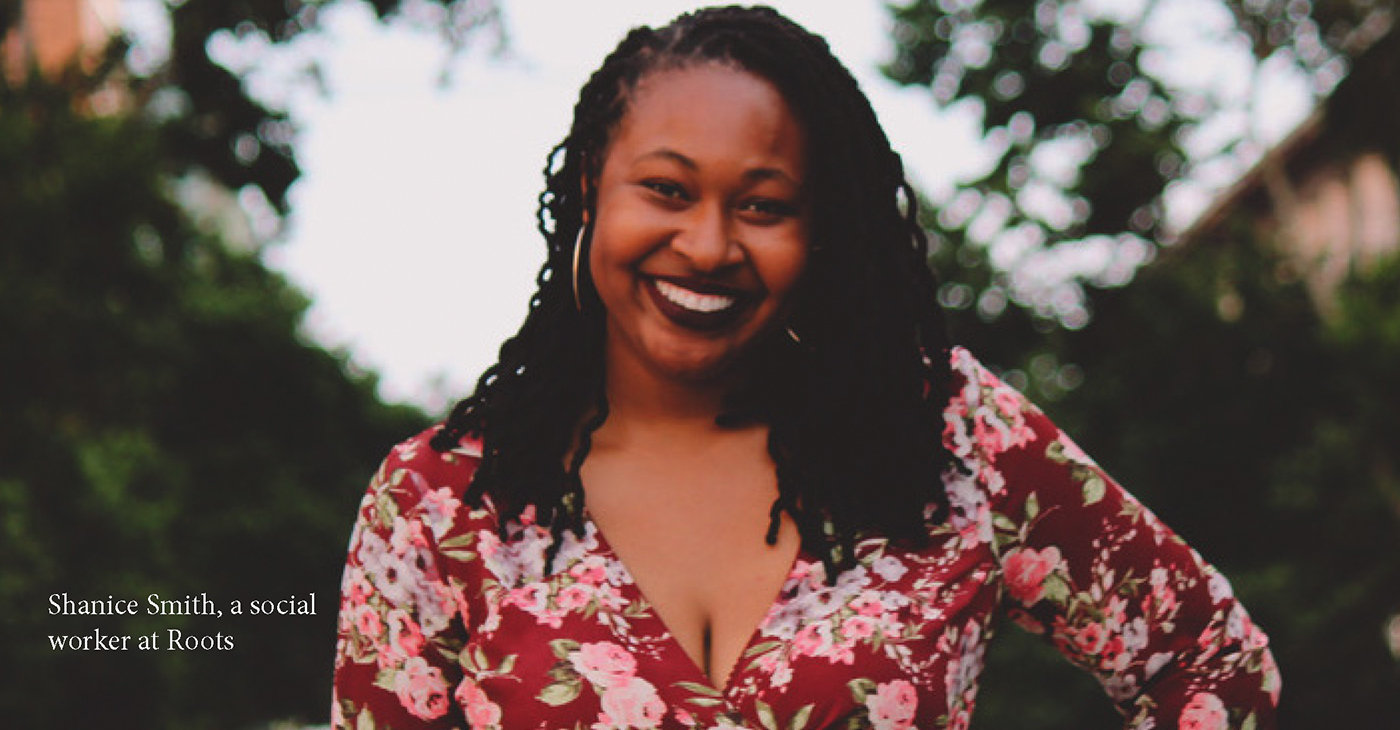
Bo Tefu | Impact Alameda
Shanice Smith, a social worker at Roots Community Health Center in Oakland, with extensive experience in behavioral health is offering tips on different ways people can keep their mental health in check, especially as we begin to head out of the global pandemic
Smith highlights the importance of developing effective mental health practices “to build a resilient community.”
Practice Self-Care, It’s Not Just a Buzzword
Self-care is about self-preservation. It’s important to make sure that you are doing something for yourself, even if it’s 30 minutes a day. So, find activities that can help curb your anxiety. For some people, it can be a fun hobby or a task such as meal prepping, as long as it can help you feel better about yourself.
Plan Your Day Around What You Can Control
The COVID-19 pandemic has made many people anxious about the future. There is no guaranteed timeline for when COVID-19 will end, however, you can plan out your day and figure out what you can control. A key lesson the pandemic taught us is that certain things are out of our control, so we need to be cognizant of the way we handle inconveniences. There are times you should also need to let things go when they are beyond your control or not working in your favor. The best way to bounce back is to focus on the things that you do have control over and make that better if possible.
Communicate with the People You Care About
The majority of people are overwhelmed with balancing their responsibilities, so it’s important to let people in your life know what’s going on. Communication can help avoid any misunderstandings and can present opportunities for you to talk about your experiences. Talking to friends and family does not mean that you should not work with a mental health professional. Consult a mental health professional if you recognize the need for mental health support.
Go Out for Fresh Air
Being indoors for many days can affect you mentally, physically, and spiritually. It’s important to follow recommended safety precautions even if you are vaccinated but go outside and get some fresh air. It can help you feel better to spend time outside, whether you are enjoying a picnic, taking a walk, or doing an exercise routine. Take part in activities that will help boost your mood — as long as you feel safe and comfortable.
-
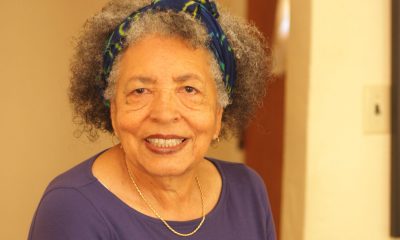
 Business2 years ago
Business2 years agoVolunteer to V.P.: Margot Dashiell Fights for Families Dealing With Mental Illness, Trauma
-

 Resource Guide2 years ago
Resource Guide2 years agoIMPACT MEDIA | SPRING / SUMMER 2022
-
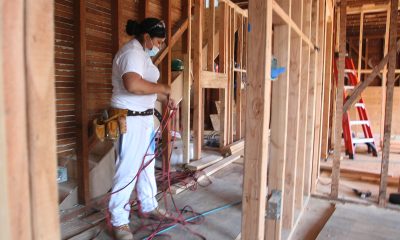
 Highlights2 years ago
Highlights2 years agoJustice = Jobs: YEP, an Oakland Org, Prepares Youth for Careers, Education Access
-

 Business2 years ago
Business2 years agoWalking by Faith, Leading with Love: Rev. Ken Chambers Invests in Alameda County
-

 Business2 years ago
Business2 years agoA Voice for Victims: Cal NAACP Is Clearing Criminal Records for Free
-
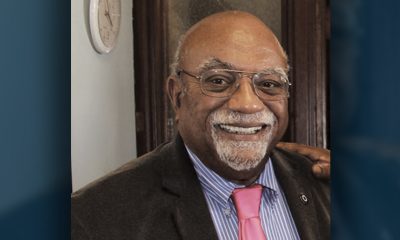
 Highlights2 years ago
Highlights2 years agoJuvenile Justice in Alameda County: We’re on Our Way but More Needs to Be Done for Our Children
-

 Business3 years ago
Business3 years agoMichala Toscas: Oakland Cannabis Kitchen
-

 Highlights2 years ago
Highlights2 years agoA Voice for Victims: Cal NAACP Is Helping to Clear Criminal Records for Free

